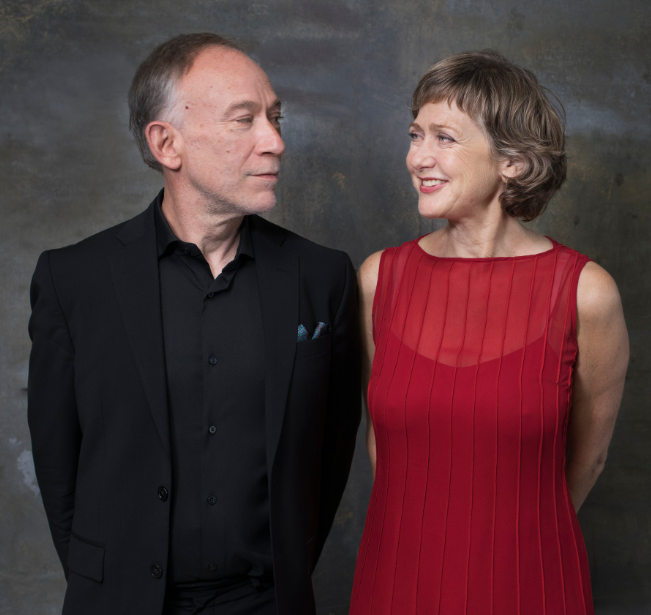The Banff Centre for Arts and Creativity is one of the best places in Canada to explore new artistic expression and to add to one’s creative arsenal. This can be true even for one of the most celebrated masterworks in western classical music.
Faculty and participants in the Banff Centre’s Interplay program are getting set to share a reimagined version of J.S. Bach’s St. Matthew Passion. Eight singers and several instrumentalists will perform a reduced version of the Passion with unique modifications and additions led by soprano Suzie LeBlanc and keyboardist Alexander Weimann from Early Music Vancouver.
“One of the beautiful features of the Matthew Passion is that it’s grouped in two choirs plus orchestra,” explains Weimann. “Therefore, that number eight – so it’s basically two times four – two sopranos, two altos, two tenors, two basses. And that’s sort of the bare minimum that you really need. And with that in mind, and the idea that then each of these singers would get a solo moment.”
Alongside pulling solo duties in arias and in ensembles, the singers are also working with staging the Passion, an uncommon treatment for the 1727 oratorio. The drama of the Passion is also being performed in English and French alongside of its original German. LeBlanc notes that while the piece’s message does not change in the use of different languages, the nuance of each language adds layers to the drama.
“It’s not an opera, but there’s so much that you can do with the storytelling,” says LeBlanc. “And it’s a great story – it's extraordinary. And so, that’s what we’re working on with the singers: how to make the stories personal to yourself, how to fit them in our 21st century.”
“Relationship between text and music is at the core of Bach’s artistry,” adds Weimann. “Bertolt Brecht, the German, he brought that element of verfremdung – making it strange, making it artificial, and therefore, break the illusion. I think it’s actually helpful to break the habit of one language and to experience it as a piece that is challenging because the story is extraordinary and it’s not harmless.”
LeBlanc notes that since many of the singers have not performed as a soloist in a Passion before, their artistic vision makes them perfect performers to take on this project. “If they’ve never sung it in German – we have an Evangelist who’s not done it in German – so it doesn't have to unlearn or relearn. They’re approaching it for the first time in a new language, which is sort of interesting.”
“The more we’ve been working on it, the more we’ve found something to appreciate from, let’s say, the sheer authenticity or the willingness to make this work in a language.”
With the 300th anniversary of the St. Matthew Passion taking place in 2027, both LeBlanc and Weimann are looking at this workshop as a way for them to gain new insights into a piece that has been at the cornerstone of their performing careers. Weimann notes that being at the Banff Centre itself has been a wonderful place to give more close analysis to the music and to interrogate their own performance practices. “To have that wonderful protected space to ask yourself, ‘Why am I doing that?’ is priceless. And, I mean, as you all know, whichever industry you are in – also in the music industry – that space doesn’t exist a lot. I’m extremely grateful.”
